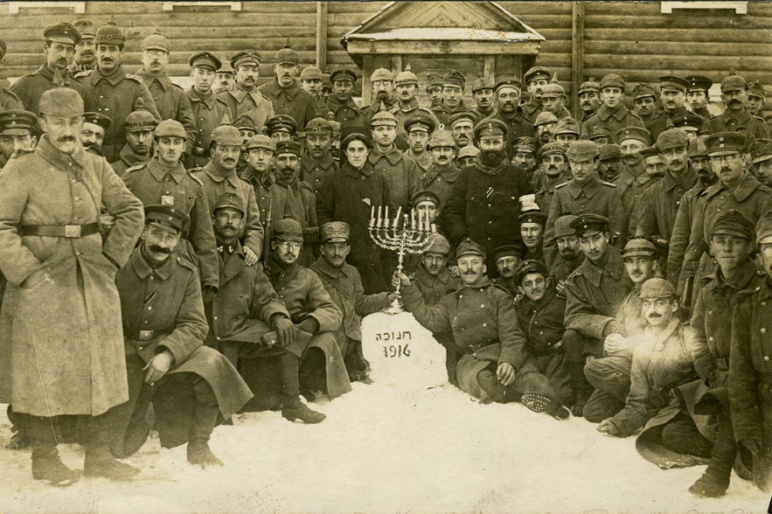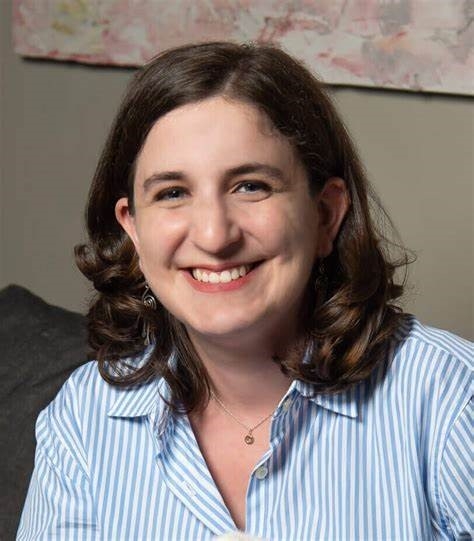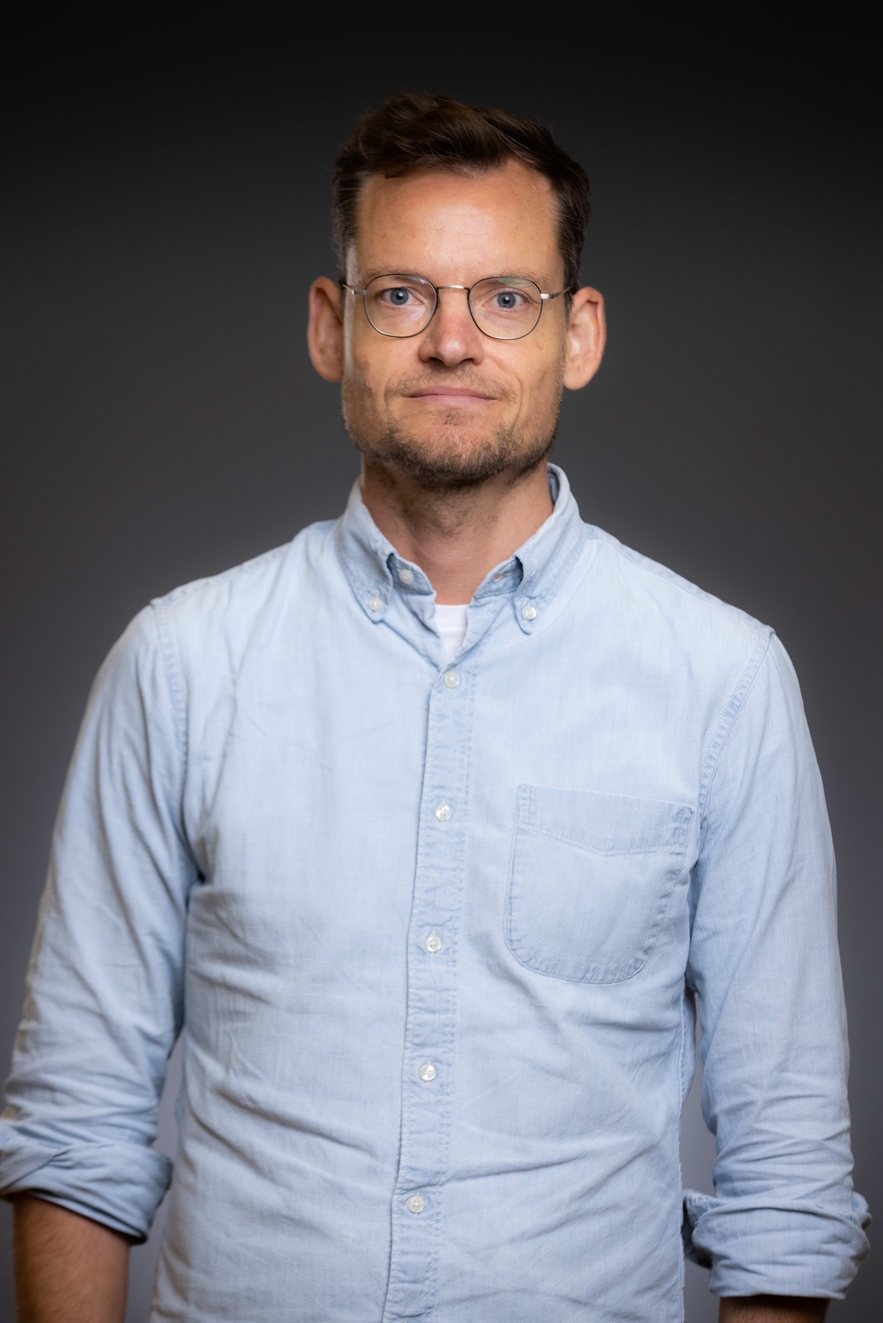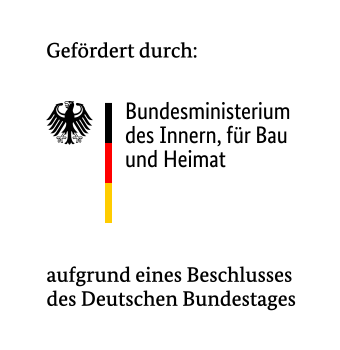
- Diese Veranstaltung hat bereits stattgefunden.
LBI New York | Berlin: „As a Jew“ – Identity, Conflict, and Politics with Emily Tamkin and Philipp Nielsen
29. Oktober 2024 @ 18:30 UTC+2

„As a Jew“ – Identity, Conflict, and Politics with Emily Tamkin and Philipp Nielsen
Part 2 of the LBI Forum on Antisemitism & Democracy
About the event:
On the eve of WWI, German Jews had enjoyed full civil rights for at least a generation but found their place in society was still contested. Sensing an opportunity for full integration, many enthusiastically pledged their support to Kaiser and Fatherland. By 1916, when Prussian military officials demanded a census of Jewish soldiers to prove their suspicion that they were shirking combat duty, it was clear that the Jews might be blamed for a military defeat. And the “stab-in-the-back” myth that held Jews responsible for Germany’s catastrophic defeat in 1918 proved one of the most enduring tropes of the fascist movement.
As historian Philipp Nielsen has shown, however, not all German Jews perceived antisemitism as the greatest threat to their position in society in this period. Some during WWI viewed Germany as a potential liberator of their brethren in the East from the oppression of the Czar. After the war, many of those who resented the denigration of their war service by antisemites still saw a greater threat in Bolshevism. Some defended their belonging in the German polity by drawing careful distinctions between themselves and Zionists, Socialists, and new Jewish immigrants from the East.
In her survey of inner-Jewish conflicts over the last century in America, Bad Jews, Emily Tamkin has outlined how groups of American Jews have staked out analogous positions, both in the same period and up until the current day. While the context was different in the early 20th century and has only transformed since, many of the same divisions – between left-wing Jews and right-wing Jews, Zionists and non-Zionists, secular Jews and religious Jews – are recognizable.
About the Panelists:

Emily Tamkin is a journalist and the author of The Influence of Soros, Bad Jews, and a forthcoming work on Holocaust consciousness and remembrance. She is a contributing columnist at the Forward and her work also regularly appears in Haaretz, the New Republic, Slate, and the Washington Post, among other publications. She previously covered foreign policy on staff at Foreign Policy and BuzzFeed News and served as US editor of the New Statesman. She has been a recipient of the Heinrich Böll Fellowship and the Council on Foreign Relations International Affairs India Fellowship and was part of the inaugural cohort of Shalom Hartman writers and journalists. She lives in Washington, DC.

Philipp Nielsen is Associate Professor for Modern European History and the Adda Bozeman Chair in International Relations at Sarah Lawrence College, New York, and Lecturer on Memory and Heritage at the University of Groningen, the Netherlands. He received is PhD from Yale University in 2012. His publications include From Heimat to Hatred: Jews and the Right in Germany, 1871-1935 (Oxford University Press, 2019), Feeling Political: Emotions and Institutions since 1789 with Ute Frevert et al. (Palgrave 2022), Staging Authority: Presentation and Power in Nineteenth-Century Europe. A Handbook edited with Eva Giloi et al. (Berlin: DeGruyter, 2022), and Architecture, Democracy and Emotions: The Politics of Feeling after 1945 edited with Till Großmann (Routledge, 2019). His research interests include German political and architectural history, German-Jewish history, and the history of emotions.
About the Forum on Antisemitism and Democracy:
In contemporary discourse around the rise in antisemitism worldwide and antisemitism’s enduring role in antidemocratic political movements, the experience of German-speaking Jews is a frequent reference point. The collapse of Weimar democracy and the antisemitism of the Nazis are indeed profoundly instructive about the danger of unchecked hatred of Jews, but ideally the historical allusions of contemporary pundits would not be the end of an argument, but the beginning of historical investigations. How did German and Austrian Jews perceive antisemitism, and how were they impacted? How did they respond, as individuals and as communities, and how did their responses succeed or fail?
In order to contribute to this discourse, LBI is planning a series of events that will pair a historian and a public intellectual to examine key moments in German-Jewish history between 1914 and 1933 – both on their own terms, and as touchstones for understanding today’s world.
These events will be in person at the Center for Jewish History. In case you cannot make the live events, they will be recorded and subsequently posted online.
Tuesday, October 29th, 2024
Center for Jewish History
15 W. 16th St.
New York, NY 10011
Admission is free, get your tickets here.


